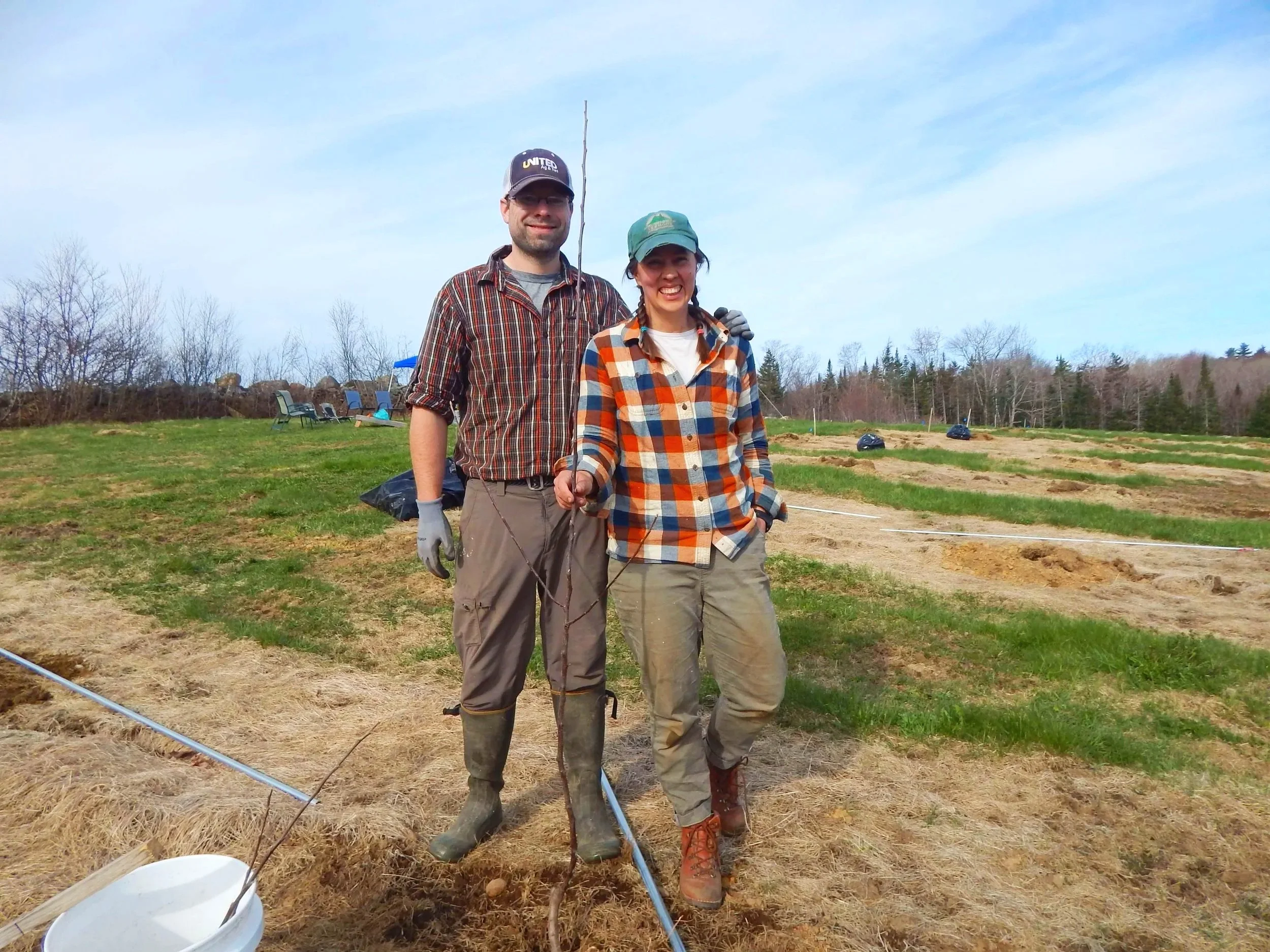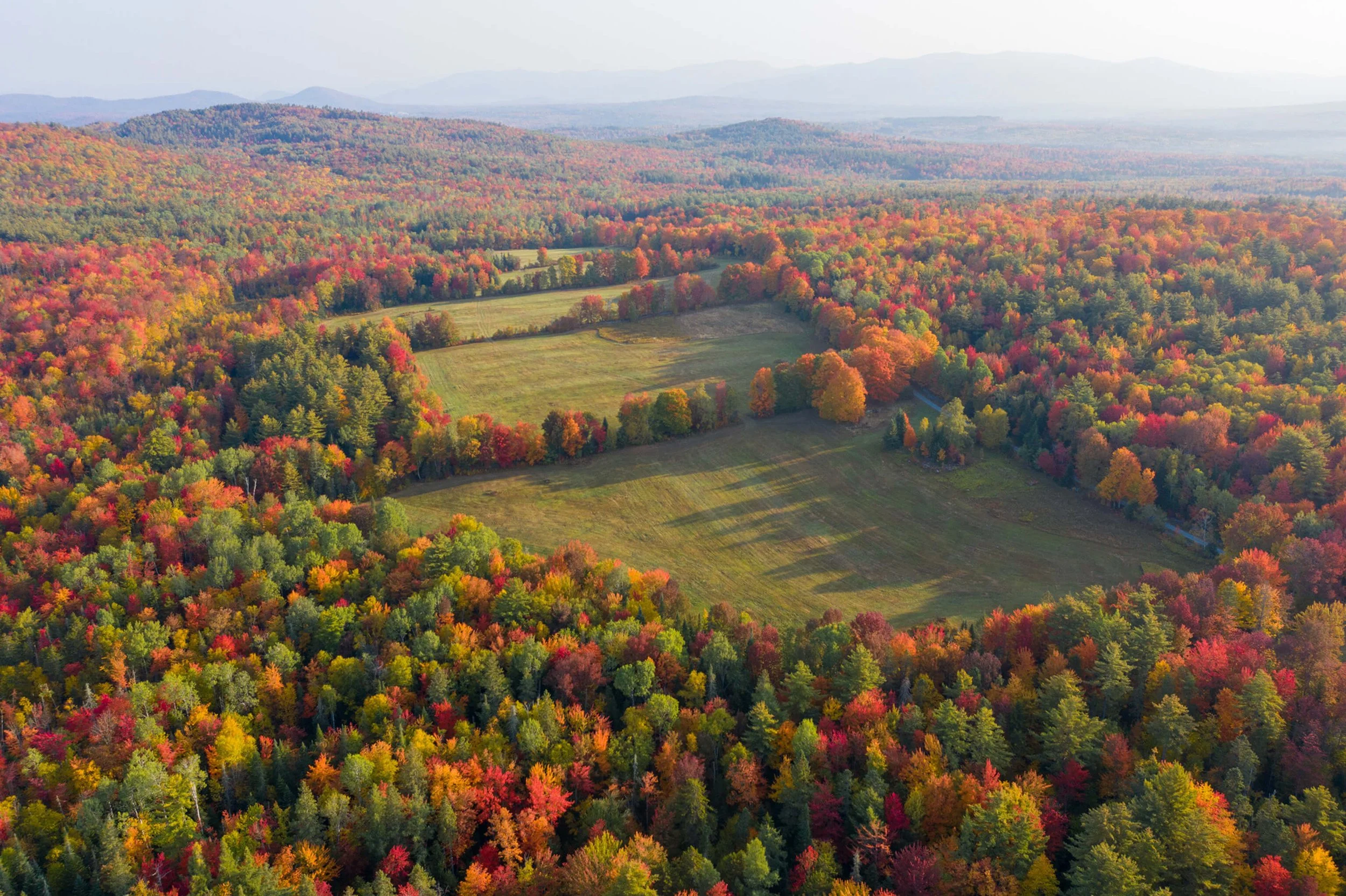People
Emily worked on farms raising animals, vegetables, fruit, and flowers, and owes her know-how to many incredible farmers and mentors. She is now a licensed professional Forester, working on forest pests and diseases for the State of Vermont. Some of her favorite things on the farm are the look of a (nearly) weed-free garden, chickens getting excited about their daily dose of fresh pasture, and the ducks getting into trouble.
Doug grew up in Concord, NH. He spent 15 years working in wildlife biology, with critters from ants to moose, and most recently as the Bird Project Leader for the State of Vermont.
Some of his favorite things on the farm are watching the apple trees get bigger each year, the "peeps" of baby chicks when they first arrive in the spring, and the sight of a well-stacked wood pile.
The Land
Tellman Hill Farm is 187 acres of hilly fields and woods in Whitefield, Coos County, NH.
This farm is located on N’dakinna, which is the traditional ancestral homeland of the Abenaki, Pennacook, and Wabanaki Peoples.
Old cellar holes, miles of stone walls, and heaps of rusty axe heads, buckles, and horseshoes speak to its history of European settlement dating back to at least the early 1800s.
In the 1900s it was run as a dairy farm by the Harris family, many of whom still live in neighborhood.
In the early 2000s, the Tellman family purchased the property and placed a Conservation Easement on it, which is held by the New England Forestry Foundation.
In 2019, Emily and Doug met the lovely Tellman family and began the next chapter of farming on this land. We chose to name the new farm operation after the Tellman family in honor of their contributions to conservation and dedication to the stewardship of this land.
OuR Values
We want to produce products of the highest quality in ways that support the health of our land and community.
As a small farm we love that customers can communicate directly with us. We are always happy to talk about our products and practices.
We make efforts to stay informed of the most current, evidence-based practices to help us make the best decisions for our land, plants, and animals.


